13 NIGHTS / 14 DAYS
Continue readingKenya & Tanzania Safari
9 NIGHTS / 10 DAYS
Continue readingKenya plus Tanzania Safari (Porini & Nimali featuring Nimali Mara Camp
10 NIGHTS / 11 DAYS
Continue readingKenya plus Tanzania Safari (Porini & Nimali featuring Central Serengeti Camp)
10 NIGHTS / 11 DAYS
Continue readingThe 2024 Graduation of Selenkay Conservancy Rangers
Conservation
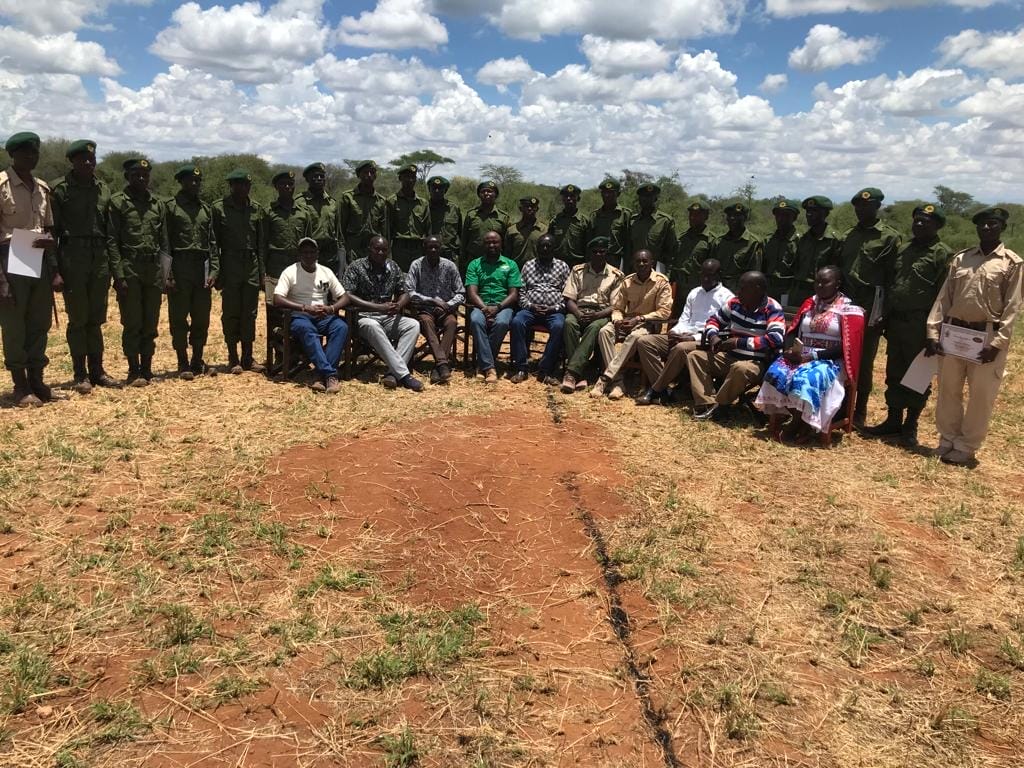
Celebrating Conservation Heroes: The 2024 Graduation of Selenkay Conservancy Rangers
In the heart of the Amboseli eco-system lies the Selenkay Conservancy, a beacon of hope for wildlife conservation and community empowerment. Established more than three decades ago by Gamewatchers Safaris in collaboration with the local community, Selenkay Conservancy
embodies the spirit of sustainable tourism and wildlife protection. Recently, on March 9th, 2024, the conservancy witnessed a momentous occasion – the graduation ceremony of its dedicated rangers.
Selenkay Conservancy: A Hub of Conservation Efforts
Selenkay Conservancy stands as a testament to the power of community-led conservation initiatives. Set up with the dual objective of fostering sustainable tourism and safeguarding wildlife habitats, the conservancy has become a model for effective conservation management. Every aspect of its operations, from tourism revenue to ranger training, is geared towards preserving the natural heritage of the region.


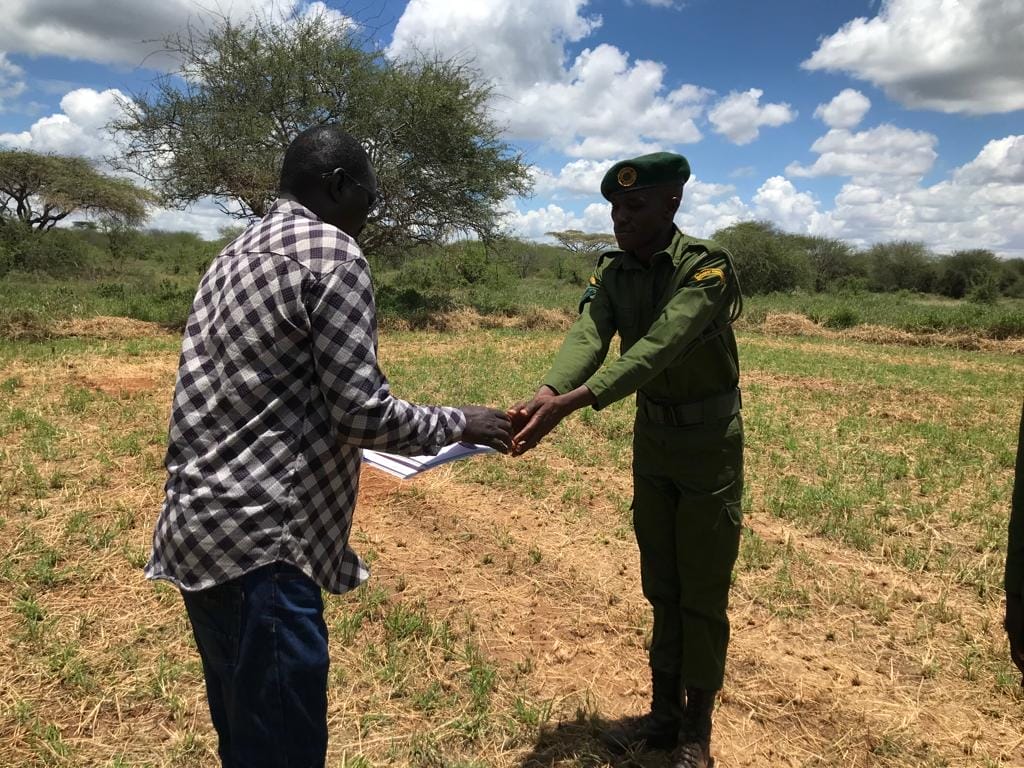
The Graduation Ceremony: A Milestone in Conservation
The graduation ceremony held on March 9th, 2024, marked a significant milestone in the journey of Selenkay Conservancy. A total of 24 rangers, including 10 returning rangers and 14 newcomers, were honored for their dedication and commitment to wildlife protection. The ceremony was a celebration of their achievements and a testament to the unwavering spirit of
conservation.
Ranger Training Program: Building Guardians of the Wild
The comprehensive ranger training program, spanning 14 days, equipped the rangers with the essential skills and knowledge required for effective wildlife management. From drill exercises to crime scene management and GPS navigation, the training covered a wide array of topics
essential for ranger duties. Each ranger emerged from the program as a guardian of the wilderness, ready to face the challenges of protecting Selenkay’s rich biodiversity.

Community Engagement: Empowering Local Communities
One of the hallmarks of Selenkay Conservancy’s success lies in its commitment to community engagement and empowerment. The conservancy’s revenue-sharing model ensures that local
communities benefit directly from tourism activities. Additionally, the employment of local rangers and support staff further strengthens the bond between the conservancy and the community, fostering a sense of ownership and stewardship of the land.
Looking Ahead: A Bright Future for Conservation
As we reflect on the graduation ceremony of Selenkay Conservancy Rangers, we are reminded of the critical role that dedicated individuals play in conservation efforts. Their unwavering commitment and passion for protecting wildlife and habitats serve as inspiration for
future generations. As Selenkay Conservancy continues its journey towards sustainable conservation, we remain optimistic about the future of wildlife and communities in the Amboseli eco-system.

The graduation ceremony of Selenkay Conservancy Rangers serves as a poignant reminder of the importance of community-led conservation initiatives. Through their dedication and hard work, these rangers embody the spirit of conservation heroes, tirelessly working to safeguard our planet’s natural treasures. As we celebrate their achievements, let us renew our commitment to protecting wildlife and habitats for generations to come.
Remember, guests staying in our Porini Camps make a significant direct contribution to protecting habitat and supporting communities. Learn more about how we support wildlife conservation and local communities: https://www.porini.com/saving-wildlife-in-kenya/
Empowering Girls to Stay in School with PadMad – International Women’s Day 2024 Special
Community
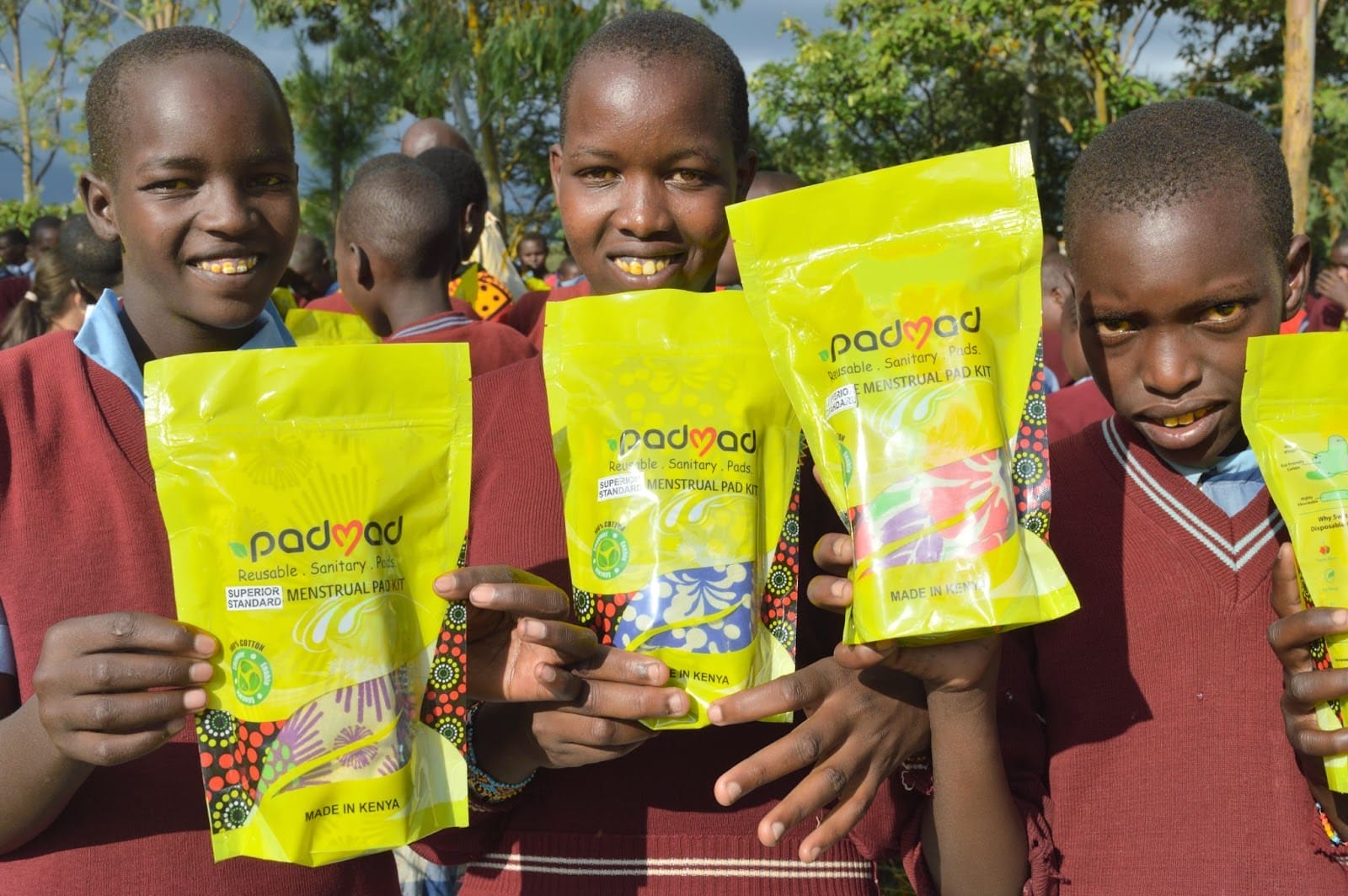
Empowering Girls to Stay in School with PadMad – International Women’s Day 2024 Special
As the sun rises over rural landscapes of Kenya, a silent struggle unfolds in the classrooms of remote schools. For many young girls, their education journey is disrupted by the natural rhythm of their bodies. Absences during menstrual cycles, lasting anywhere from three to seven days, create a stark disparity in learning opportunities between genders. Coupled with the pervasive stigma surrounding menstruation, these challenges cast a shadow over the educational prospects of young girls in these communities.
As part of our commitment to helping improve the communities around conservancies where Porini Camps are located, Gamewatchers Safaris and Porini Camps partnered with PadMad, a social enterprise based in Kenya keen on addressing period poverty, and donated reusable sanitary towels to over 170 girls and boys of Endonyo Narasha Primary School in Narok county, on International Women’s Day 2024.
65% of women in Kenya cannot afford the necessities to manage their periods. This is according to a report from the US Agency for International Development (USAID). These statistics have profound implications for women’s health and more so on their education and overall well-being of school-going girls of menstruating age who end up missing school regularly.
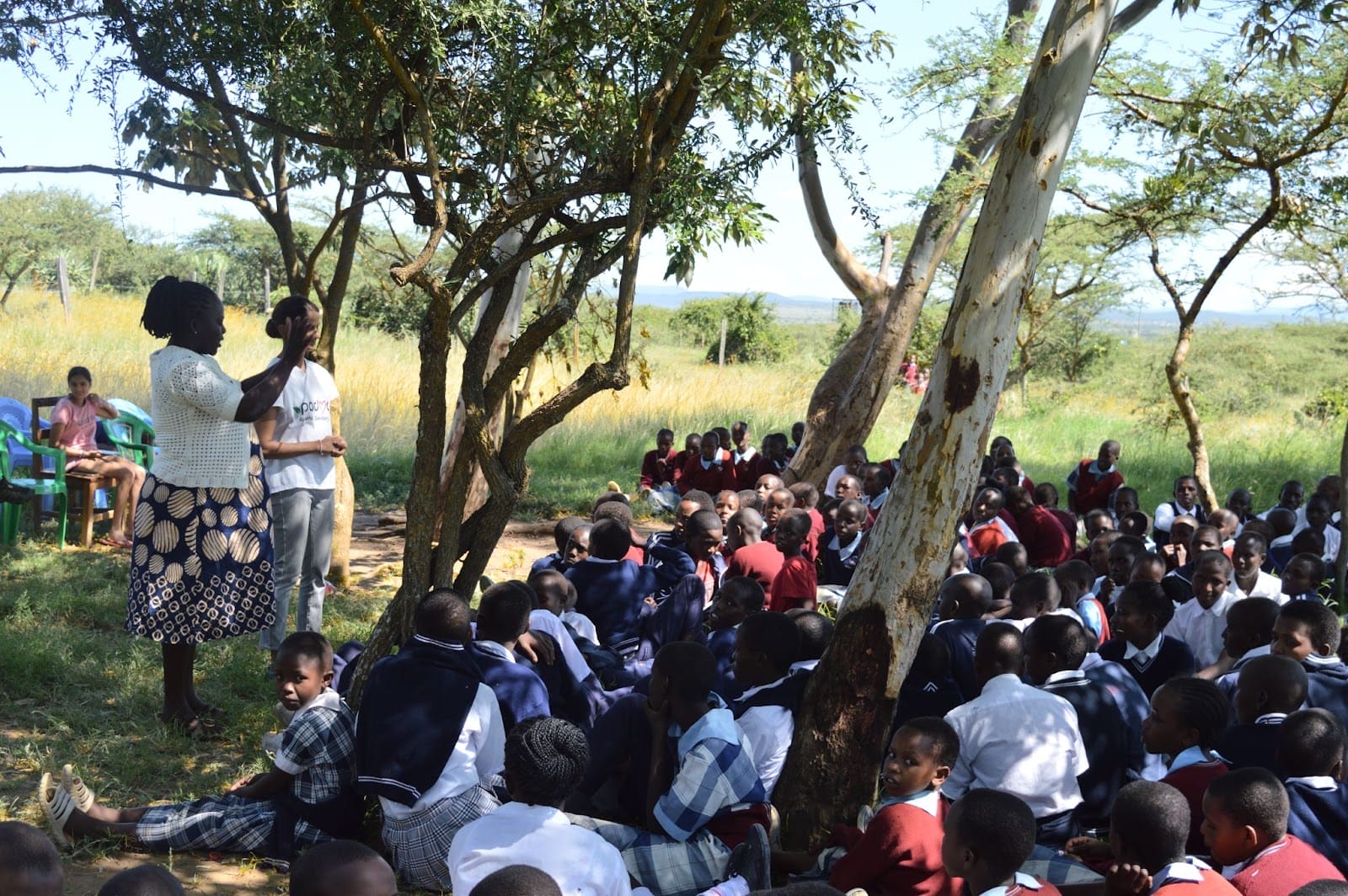
According to Peris Njeri, a dedicated nutrition teacher at the school, a prevalent issue among female students is their frequent absence from classes due to the unavailability of sanitary pads. This recurring challenge not only disrupts their education but also has far-reaching consequences on the academic performance and well-being of these young girls.
“Most of the parents are quite ignorant. They don’t understand the importance of Sanitary Pads so you find sometimes they send the girls to us here in school and the girls are in their periods and they don’t have the sanitary pads or if not so, they retain the girls at home and it becomes quite a challenge, even when the girls come to us after the 3 days, they are quite embarrassed because it’s like everybody knows the reason why they didn’t come to school,” explains the teacher.
“Sometimes they fail to come to school altogether for a period of up to a whole week because they don’t have their pads so majorly they opt to stay at home. And you find that in a day, it becomes quite obvious in a day, you can’t get a full class of girls because almost every day there’s a girl who has missed and it’s quite a challenge to us,” she adds.
The school occasionally receives sanitary pads from the local government. However, these donations are sporadic and insufficient to meet the needs of all the girls in the school. The inconsistency of these donations exacerbates the challenge of ensuring adequate menstrual hygiene management for the female students.
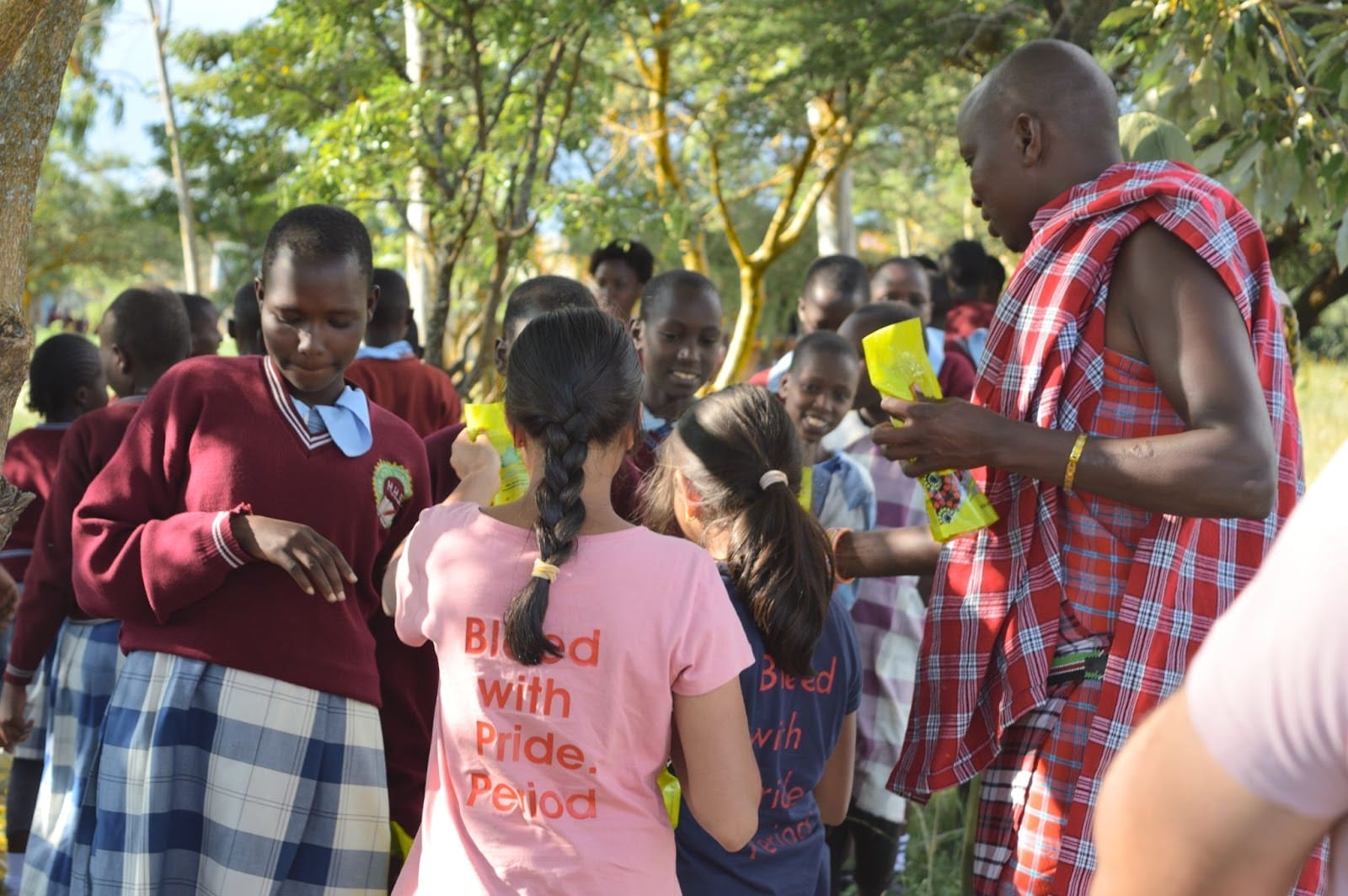
PadMad to the rescue
PadMad, a Kenyan social enterprise, is committed to tackling period poverty through the provision of a sustainable solution: reusable sanitary towels. In addition to supplying these eco-friendly pads, the organization offers comprehensive education on Menstrual Health Management and Sexual and Reproductive Health Rights to underprivileged and marginalized communities. What sets PadMad apart is its approach to production: the sanitary towels are meticulously stitched in rural Kenyan communities using locally sourced materials, thereby not only meeting a crucial need but also empowering marginalized women through employment opportunities.
“So we work on three pillars. One is education, empowerment and environment. So we have an educational program which we run in schools for boys and girls and community members. And the empowerment, we try and employ marginalized women and some men, so for example incarcerated or ex-cons, incarcerated women, teen mums, etc. as part of our program to manufacture reusable pads. And environmental products are very long-lasting and they’re 100% biodegradable,” says Madhvi Dalal, PadMad Founder and Director.
For years, the organization has partnered with Gamewatchers Safaris and Porini Camps, stemming from research conducted by Gamewatchers. This research uncovered a troubling reality: a considerable number of school-going girls in the vicinity of Ol Kinyei Conservancy were confronted with challenges leading to high dropout rates. Among these challenges was the unavailability and unaffordability of essential items like sanitary towels, compounded by their limited accessibility in nearby areas.
“The reason why we are supporting the school with this is to reduce the number of girls that drop out as a result of a challenge faced due to lack of sanitary pads in the school, in the community, and there is nowhere to buy them around. So usually when they are on their period stage, then they opt to go away from school, and finally they are just married and go off,” said Ol Kinyei Conservancy Senior Warden Simon Nkoitoi, during the donation.
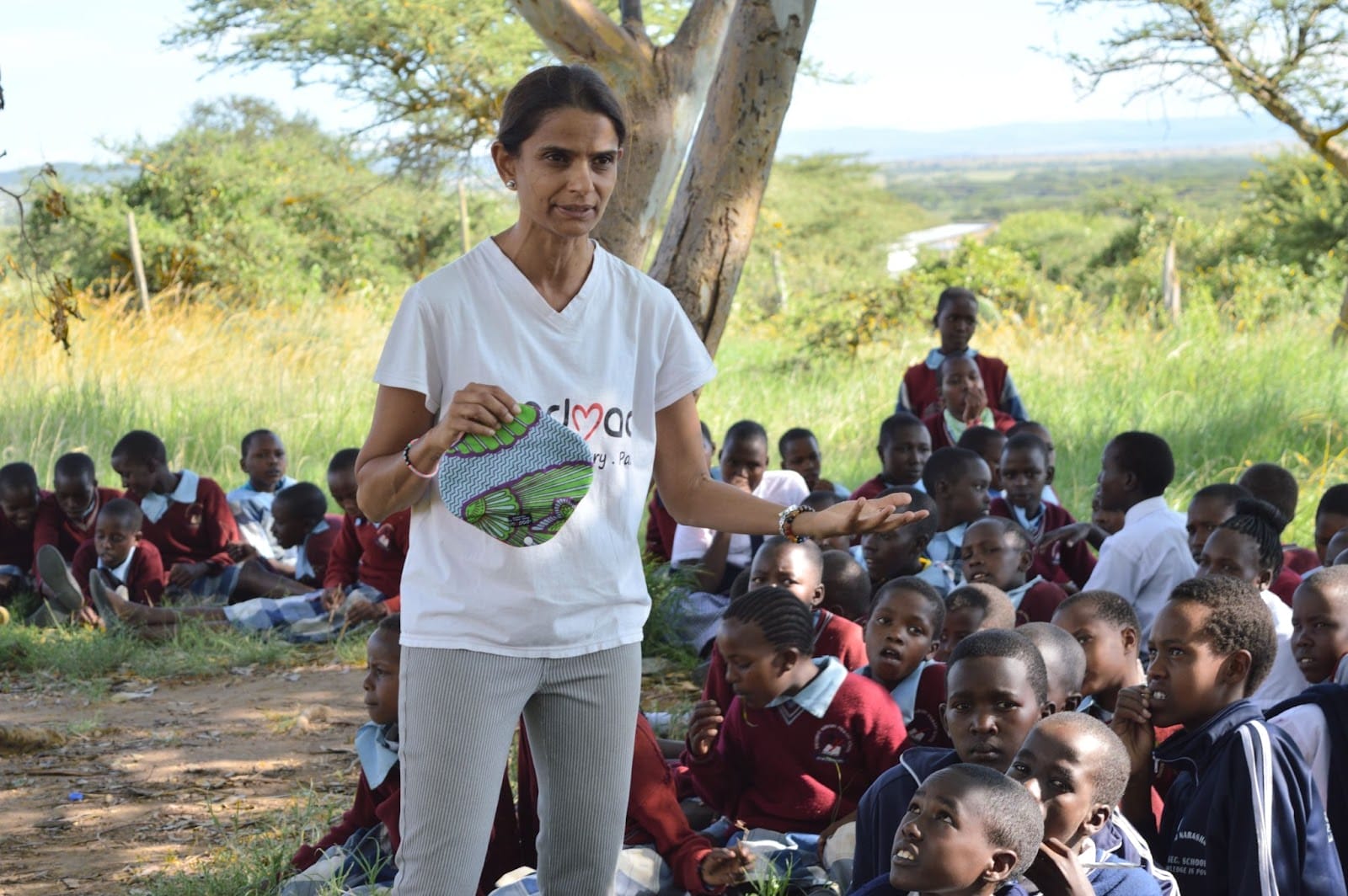
The importance of educating both the girl and the boy child about Menstrual Health
The donation event held on International Women’s Day 2024 aligned perfectly with the theme of the year: ‘Invest in women: Accelerate progress.’ It championed gender parity by educating both girls and boys on menstrual health, emphasizing the importance of equal access to essential resources for all.
“Well, we’re trying to aim to solve a big problem. So basically we’re trying to bring dignity into this whole, to make sure that the girl child can continue to go to school and if she is, then she can then maybe go for employment, peer-to-peer, and have that kind of elevation in whatever she is wanting to do and then maybe she can empower herself, empower family and the community to make sure that we really try to bring in dignity to the whole community,” said PadMad Director, Madhvi Dalal.
The director of PadMad emphasized the significance of involving boys in the conversation to cultivate understanding and eradicate period teasing and stigma.
“So today we have 170 girls and probably an equal number of boys who have benefited from the program, but to date we’ve impacted more than 61,100 girls and more than 50,000 boys. Educating the boy child is not even a question anymore. We need to do this. The reason why is because they are part of our community. They need to understand what is happening to girls. Girls need to also know that they feel safe peer-to-peer. And there are so many other consequences. Teen pregnancy, there’s so much education which goes with it. So they realize they are all in this community together,” explained Madhvi.
The event encompassed educational sessions for both girls and boys, featuring demonstrations on the proper use of reusable pads. The session concluded with pupils being taught affirmations aimed at boosting their self-confidence. The students gleaned valuable lessons from the session.
Solomon Kibelekenya, a student who participated in the sessions, shared, “Nimejifunza kama ni mwenzako ama wewe ni mvulana na umekuta msichana, hiyo damu imeingia kwa nguo zake si vizuri kumchekelea na si vizuri kumdharau. Ni vizuri kwenda kuambia mwezake ama marafiki mwenye anaweza kumsaidia” (I have learned that if you are a boy and you’ve seen a girl who has soiled her clothes, it is not good to laugh at her or look down on her. It’s good to go to her fellow female student or her friend who can help her).
Amina Kiok, another student at the school, expressed, “Nimegundua kuwa ukipata period ni mzuri kwako kwa sababu ukipata MP utapata watoto” (I have realized that getting your period is good because it is a sign that you will get babies in the future).
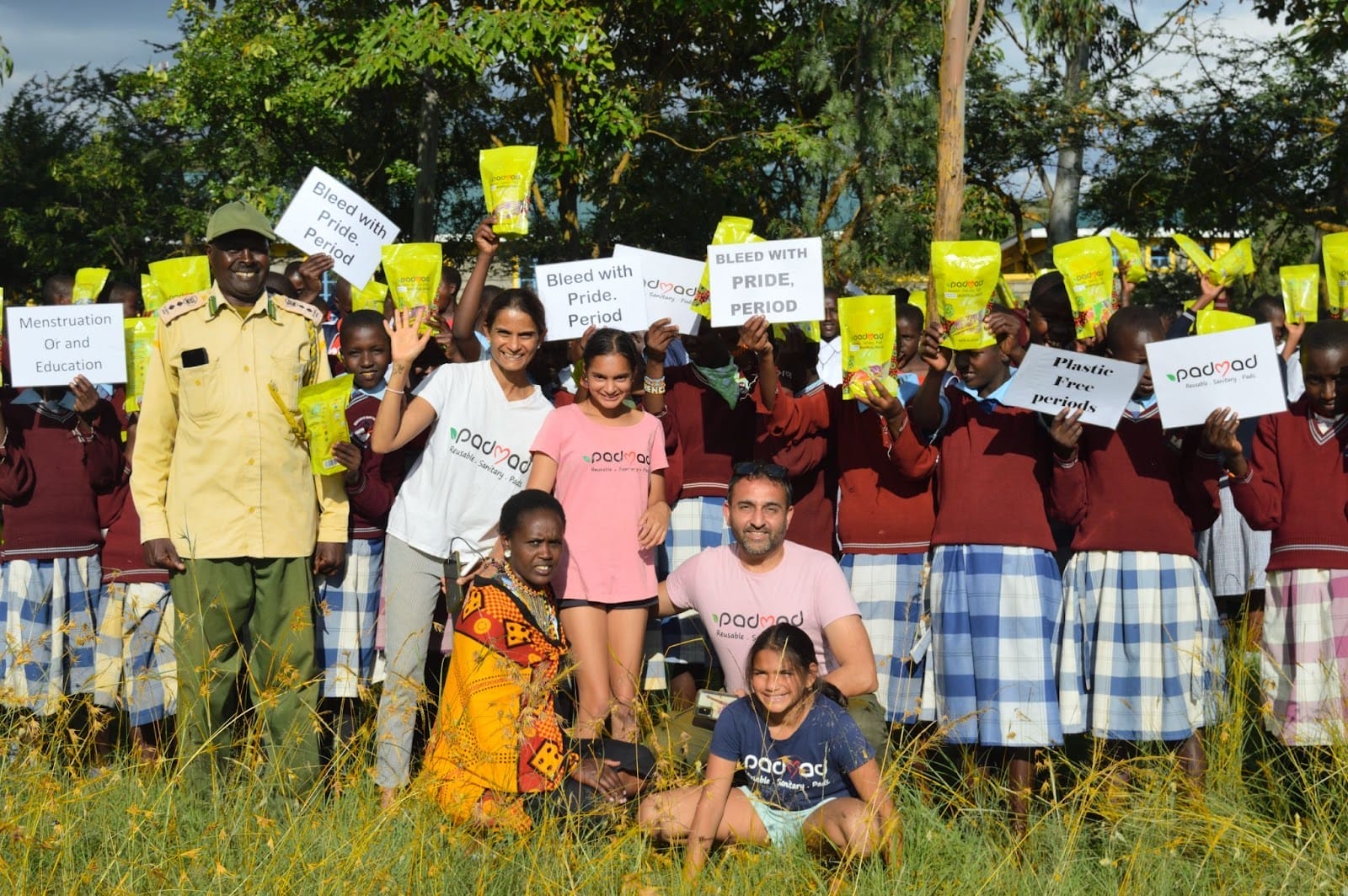
The School's Appreciation for PadMad
The school expressed gratitude for the donations, stating that they will supplement the assistance received from the local government. Furthermore, the girls will no longer need to spend at least Ksh 100 each month on disposable pads, which contribute significantly to pollution due to their high plastic content and improper disposal. Instead, they have received reusable sanitary kits, which are eco-friendly alternatives.
“We are very much grateful because they’ve come to us when we really needed their help. We’ve been waiting for government donation and has not yet come so it was quite a challenge since we opened school. We are very much grateful to Padmad and Porini, they’ve been of great help and we are going to hope and pray this won’t be the last time. They’ll keep coming so that we can help the girl child in our area,” said Teacher Njeri.
“We are very happy and the school is very happy that they received that number. These sanitary pads are reusable, they can be used for up to five, six years as opposed to the normal plastic which is disposable and they litter all over and they fill up our toilets and now these ones are reusable. They can be washed and now they can be reused again,” added Nkoitoi, representing Gamewatchers and Porini Camps, during the donation event.
Previous Collaborations between Gamewatchers Safaris and PadMad
PadMad has also in the past distributed sanitary towels to other schools within the Ol Kinyei Community including Oloibormurt and Kishermoruak Primary school and this was the first time, the pads were being donated in Endonyo Narasha Primary school. In Selenkay Community, PadMad distributed this important kits to three schools including Iloirero, Lenkisem and Iltuleta primary schools in 2022.
We need your support!
Your support can make a significant difference in combating period poverty. Madhvi emphasizes that donations and raising awareness are crucial steps towards ending this pervasive issue.
“People can support these projects through, obviously, donations in any currency, but also to bring in awareness, to make sure that they’re spreading positive things about menstruation and just to have dialogues in their homes and men but also to bring in awareness, to make sure that they’re spreading positive things about menstruation and just to have dialogues in their homes and men talking to their daughters about this,” said PadMad Director, Madhvi.
Your contribution will directly impact the lives of young girls by providing them with reusable menstrual kits, offering long-term solutions to their menstrual hygiene needs. These kits, consisting of liners, pads, and holders, are not only eco-friendly but also durable, lasting up to five years.
Join us in making a difference by supporting our community projects. Together, we can ensure that every girl has access to the resources she needs to manage her period with confidence and dignity. Learn more about how you can get involved by visiting our website: https://porinisafaricamps.com/join-hands/
We extend our heartfelt gratitude to acclaimed wildlife photographer Alison Mees and her generous friends for their donation of £550 towards the reusable pads. Your support is deeply appreciated and will make a meaningful difference in the lives of young girls.
Let’s work together to create a world where period poverty is a thing of the past. Thank you for your support!
When is the best time to visit Kenya?
Kenya Safari

When is the best time to visit Kenya?
Since the birth of the modern safari holiday in the 1920’s, Kenya has been the destination of choice for intrepidexplorers to get a taste of wild Africa and the storybook animals that roam free of cage and bars. On many people’s bucket lists, an African adventure taking in the Maasai Mara takes on a daydream quality. The Safari holiday has changed somewhat since the early days of heading out into the bush with gun and tent in favour of ecotourism evolving from the efficient tourist infrastructure the country has created.
The best time to travel to this wonderful country is dependent on what you want to do, experience, and see. Kenya’s on the equator and it’s considered a year-round destination so you can travel at any time and have a great time on safari. Wildlife viewing is year round with lions, leopards, cheetahs, elephants and all the iconic animals seen year round. The great wildebeest migration, with millions of grazing animals moving from the Serengeti to the Mara, usually starts to arrive in the Mara towards the end of June and leaves by early October. Another smaller migration of wildebeest takes place from the Loita plains through the Mara Conservancies starting in Ol Kinyei in February and March (when calving takes place) and then moving during the following weeks through Naboisho and Olare Motorogi Conservancies towards the Mara Reserve.
The climate varies across the different parts of the country, from the tropical humidity of the coast, the dry heat of the savannah and semi-arid areas, or the cool air of the highlands above 6,000 feet. It tends to be hotter from December to March, coolest in June to October, with rainy periods mainly in April, May and November. The rains tend to fall mainly at night and usually it’s a short and heavy tropical downpour.
If the beaches are your draw, the coast sees its hottest period from December through March, but even though it cools from May onwards, the temperatures are still very pleasant. Mount Kenya remains snow-capped all year, and can still reach as low as -10°C at night.
Flying into Nairobi you have the chance to see the vibrant and colourful nature of the capital before you take your onward journey to your venue. Wherever your holiday is centred you can be assured of a friendly and warm welcome from the people you meet.
7 Essential things you should know before your Kenya safari
Kenya Safari

7 Essential things you should know before your Kenya safari
All holidays involve a fair amount of planning – especially specialist tours or those involving international travel – so let us take the stress out of your safari admin with this helpful summary of the key things you need to think about before you set off.
With these points covered, you can sit back, relax and look forward to your African adventure…
1. Passports & Visas

You’ll need a passport valid for at least six months from the date of entry with at least two blank pages to travel to Kenya. If you’re from the UK, EU, US, Canada, or Australia, you’ll also need a visa.
It’s best to apply for an e-visa online, but you can also visit your local Kenyan embassy if you have any problems or questions. You’ll need two passport photos and proof of travel arrangements to support your visa application. It is also possible to obtain a visa on arrival at the airport in Nairobi, in which case you do not require passport photos but you will just need to complete a form that you should be given on the aircraft as you fly in.
Always carry spare photocopies of your passport and any visa documents with you when you travel.
See more details of Visa requirements here.
2. Vaccinations and health requirements

There are no compulsory vaccinations required for entry to Kenya unless you are arriving from a country listed by the World Health Organisation (WHO) as having Yellow Fever, in which case a Certificate of Inoculation against Yellow Fever is required from travellers older than one year. Visitors coming from other countries in Africa where Yellow Fever may occur, including Ethiopia, Rwanda and Uganda, require a Yellow Fever certificate to enter.
Some countries, including Australia, Bahrain, China, Dubai, India, Indonesia, Malaysia, Mauritius, Oman, Rwanda, Seychelles, Singapore, Tanzania, Thailand and Uganda require arriving visitors from Kenya or elsewhere in East Africa to have a Yellow Fever vaccination certificate. So if you are returning to or travelling to one of these countries after a stay in Kenya then you need to have a Yellow Fever certificate.
Other health precautions recommended by the WHO and CDC include::
- Typhoid
- Hepatitis A and B
- Meningitis
- Polio
- Influenza
- Measles, mumps and rubella (MMR)
It’s also highly recommended that you purchase travel insurance for evacuation and medical treatment—many, if not most, tour operators require it.
3. Money
Most safaris are all-inclusive when it comes to food and drink, but you’ll still need money for certain activities, local purchases and tipping.
Kenya’s currency is the shilling and it’s a good idea to carry some along with your major credit card(s). The US dollar is widely accepted by international hotels and safari camps and in fact, may even be required for certain activities. Due to a problem with counterfeit dollars, some places may not accept US bills older than 2003, however.
Travellers cheques are also an option.
ATMs are available in some larger towns and the cities of Nairobi and Mombasa, but they only dispense Kenya shillings—and not all cards are accepted. Visa cards are usually a safe bet no matter where you go.
We recommend that you change some money at the airport as the banks there typically give a better exchange rate than at the hotels. There is a bank at Jomo Kenyatta International Airport (open until midnight every day) as well as an ATM so that you can obtain local currency on arrival.
Remember to call your bank and credit card companies to let them know you’re travelling in Africa. That way, your card won’t be accidentally suspended for unexpected activity away from your home!
If you are booked on an inclusive safari which covers all the costs, then a good rule of thumb is to bring between $150 and $250 in cash per person per week for extras, in addition to any known cash expenses which you are likely to incur after arrival (like a hot air balloon ride, for example).
4. Packing
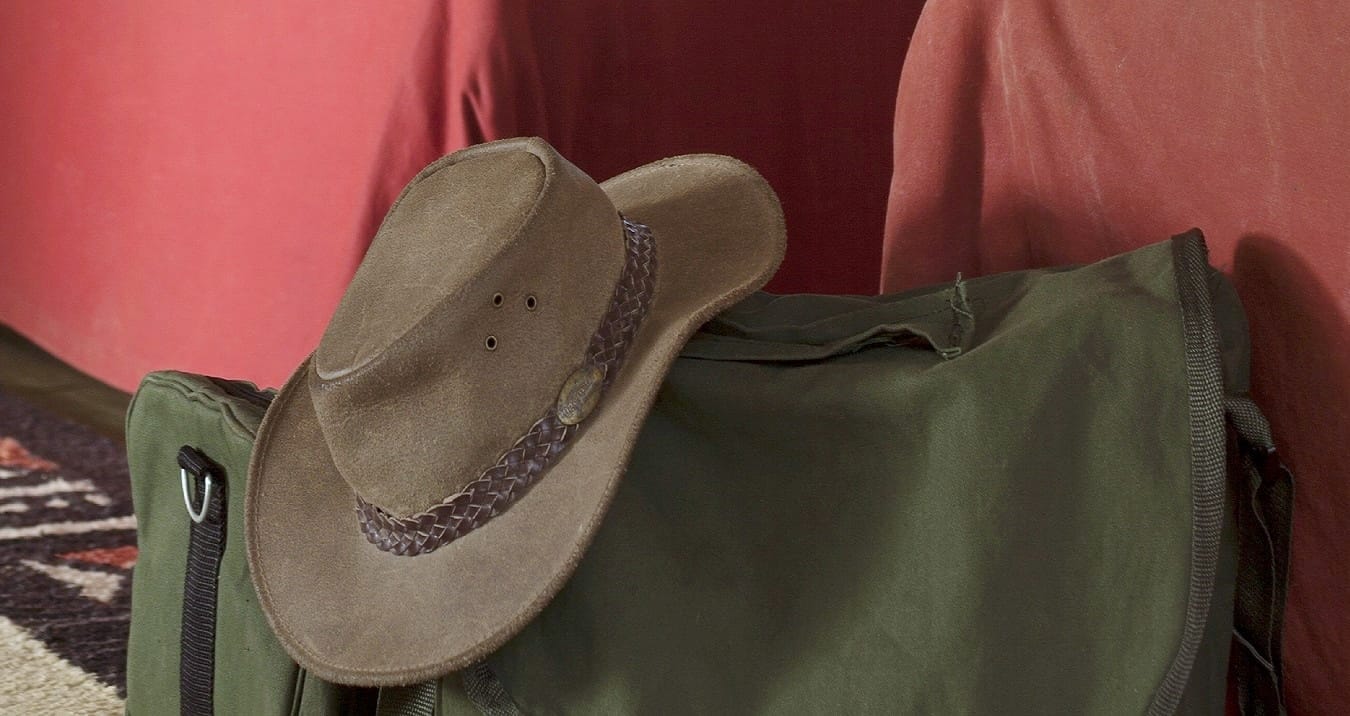
We strongly recommend that you travel with small soft bags (that are lockable) as the smaller aircraft do not allow large hard suitcases. The weight limit is normally limited to 15 kgs per passenger inclusive of hand luggage, with excess baggage over the 15 kg charged at prevailing rates, subject to availability and depending on the size of the plane.
Gamewatchers Safaris clients can send any excess luggage to be stored at our head office at no charge, provided it is locked.
Please note that plastic bags are not allowed to be brought into Kenya.
Go for comfort and convenience when it comes to your clothing. Pack clothes you’d pack for any warm weather adventure holiday, but remember these Kenya-specific pointers:
- Bring lightweight layers in both long and short lengths, plus socks, sleepwear and swimwear.
- A warm layer (sweater, fleece jacket) is a smart idea, as is a windbreaker or light jacket.
- Please note that in the highland areas of Kenya above 5000 feet it may get extremely chilly at night or in the evenings and early mornings – especially in June, July, August when temperatures can be very much colder – so it is important to ensure that you pack some items of warm clothing to avoid freezing on game drives in open vehicles.
- Bulky hiking boots are rarely necessary—a comfortable pair of lightweight trainers is probably your best bet. Flip-flops are nice to have if you are going to the beach after your safari.
- You’re going to want a hat to protect your face and scalp from the equatorial sun.
- Don’t forget a nicer outfit for your time off-safari if you are planning an evening out in Nairobi.
- Yes, khaki or dark green colours do hide the dust better than other colours, and it’s not recommended to wear bright colours on safari.
- Military-style camouflage prints on tops or trousers are illegal here, so best avoided.
Most camps have laundry facilities, so go ahead and pack light.
The must-haves…
- Mosquito repellant and sunblock (you can buy them here, but they will be pricey), plus hand and body lotion.
- Personal hygiene products.
- Any prescription drugs (keep in hand luggage)
- Anti-Malaria prophylaxis.
- First aid kit with over-the-counter diarrhoea medications, motion sickness pills, and full trip supply of any medications you take on a regular basis, plus generic names if available.
- A flashlight and/or a headlamp with extra batteries.
- A camera (and zoom lenses if you’re serious about your photos).
- Electrical adaptors: the electricity supply is 240V running at 50Hz (same as the UK) and the plug types are 3 pin rectangular blade plug
- Sunglasses.
- Binoculars: a pair per person
- Pocket knife (not in hand luggage).
The nice-to-haves…
- A Kindle or other e-reading device.
- A smallish bag or day pack.
- A flash drive if you plan to take a lot of pictures.
- Alarm clock.
- Sewing kit and small scissors (not in hand luggage).
5. What to Pack in Your Camera Bag
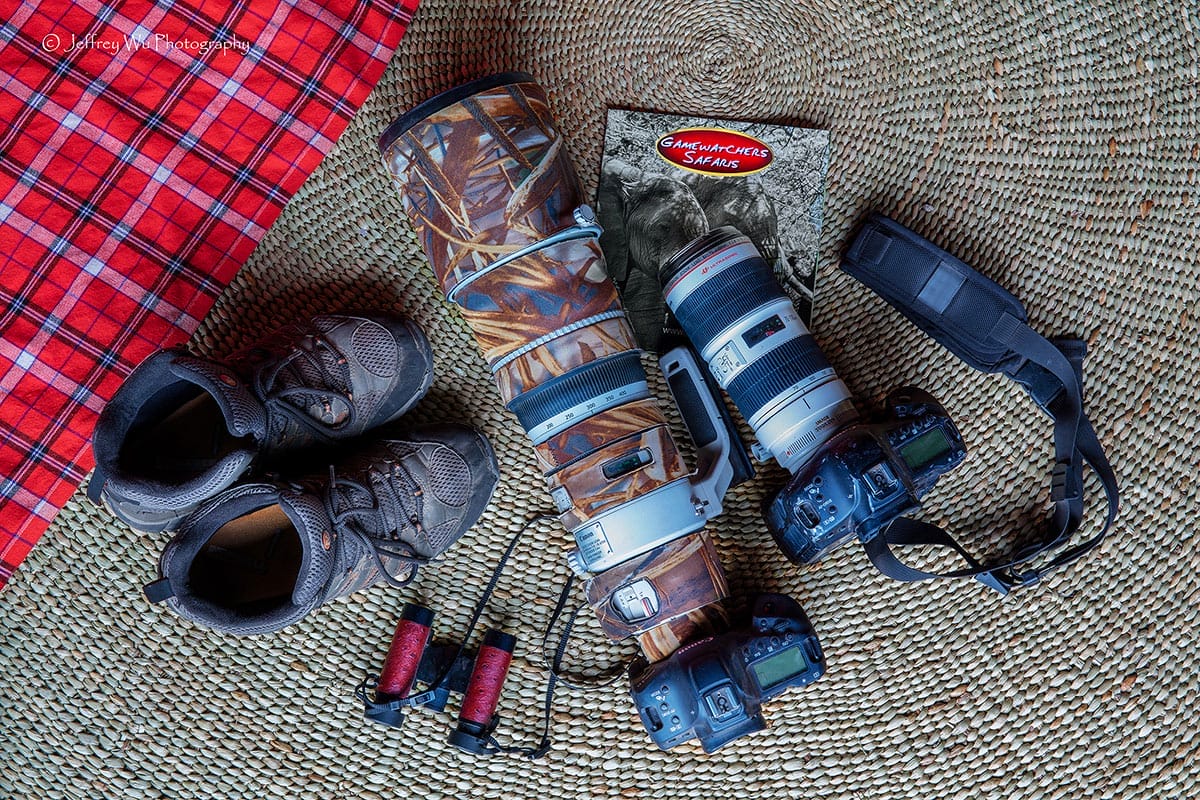
- Ideally a dSLR (digital Single Lense Reflex) camera, though with the correct techniques, composition and lighting great shots can be captured on less expensive equipment
- Serious photographers will want interchangeable lenses: in the range of 200-400mm for wildlife photography and wide angle lenses in the range of 24-100mm for close-ups and landscapes
- The charger / extra batteries. If you are using rechargeable batteries, most lodges and safari camps should have facilities to charge them.
- Plenty of memory cards
Before you leave home double check that your cameras are working and practice photographing moving objects, like your pets!
For more advice see these 6 Essential Photography Tips by Wayne Hammond – Wildlife Photographer and one of our expert Safari Advisers.
6. Reading Up

It’s a good idea to do a little pre-travel reading to help you prepare. We highly recommend these books:
The Big Cat Diary: Year in the Masai Mara by Brian Jackman
The Safari Companion, A Guide to Watching African Mammals by Richard Estes
The Rough Guide to Kenya by Richard Trillo
Wildlife of Kenya, Tanzania and Uganda (Travellers Guide) by David Hosking, Martin Withers
The Wildlife Photography Workshop by Ross Hoddinot & Ben Hall
You can see a full list of our favourite safari guides and photography books here.
7. What to Expect On Arrival At Nairobi Airport
Upon arrival you will need to clear Immigration. You may already have your visa, but if not you’ll need US$50 each in cash. Make sure you have the exact amount of US dollars in banknotes with you before you leave home as there is no foreign exchange facility in Immigration and they do not accept Credit Cards or Travellers Cheques and do not give change.
Unless you have already obtained an E-Visa then the Visa process can be a bit chaotic at the airport with everyone trying to fill in the forms and join the queues. You should have been given an immigration visa form on the plane and it is best to complete this before you land so you can go straight into the Visa queue to purchase your visa from the counters before going through passport control. Your passport must have at least 6 months left before expiry date and 2 blank pages left for visas.
After you have had your passports stamped by the Immigration Officer, you will be directed to the Baggage Reclaim area to collect your luggage and then go past Customs and exit the building and down the ramp outside, where our Gamewatchers Safaris representative will be waiting to meet you, holding a signboard displaying your name.
Often the Arrivals hall may be very crowded and, before you see our representative, you may be approached by taxi drivers offering to take you to your hotel. Please ignore such approaches and look out for our representative holding up a signboard with your name.
More Information
Do take a look at the Recommendations & Frequently Asked Questions section of our web site for more useful tips.
If you have already booked with us and you have any queries then please contact your Gamewatchers Safari Adviser who will be happy to answer your questions.
If you haven’t yet made your safari arrangements then do take a look at our latest Special Offers here, or contact us via our online Enquiry Form to start your planning and one of our team will be in touch to help you through all the options.
Alternatively, sign up for our free 6-part How to Book A Safari email series and discover how to make the most out of your time and budget.
Saving an Elephant from a Snare
Conservation
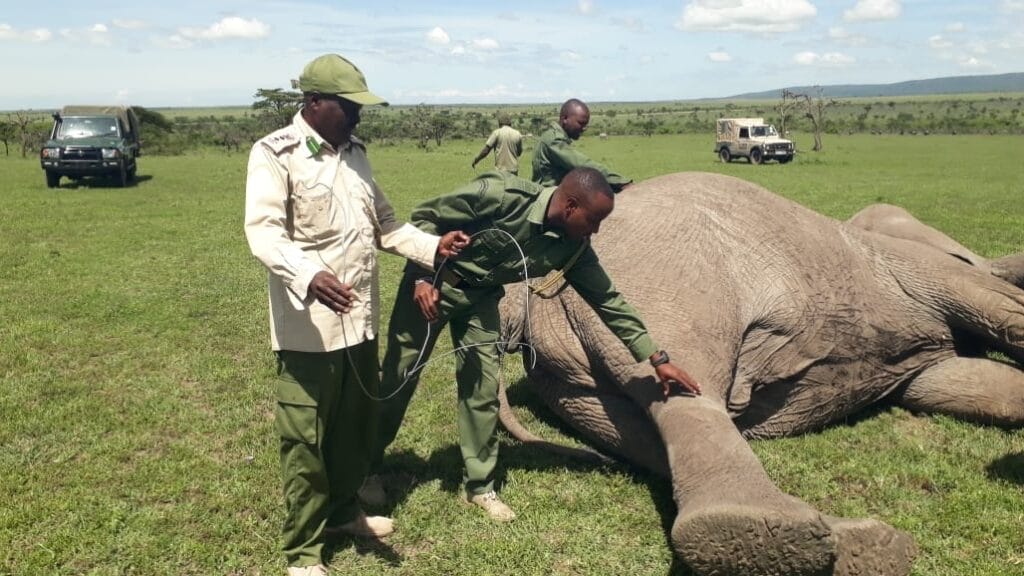
Saving an Elephant from a Snare
Earlier this month, our Ol Kinyei Conservancy rangers helped in the successful rescue of an elephant from a wire snare.
Following reports of the injured elephant, rangers rushed to the scene and found a 45-year-old adult male elephant with a wire snare wrapped around his right hind limb. The snare posed a risk of cutting into his flesh and causing an infection or even death.
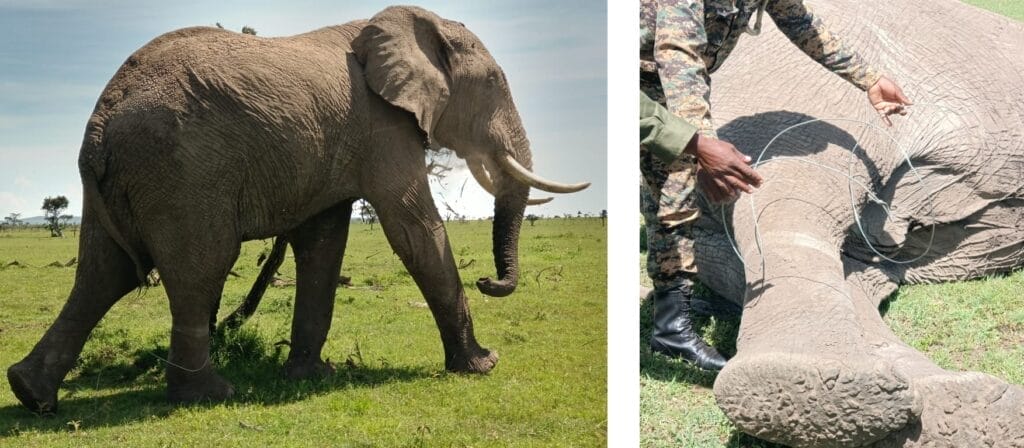
Thanks to the combined effort of our resourceful rangers, the Mara mobile veterinary unit and the Mara Elephant Project, they managed to dart the elephant and swiftly remove the snare, ensuring no harm to the elephant’s soft tissues. Now liberated, this majestic creature can roam freely once more.
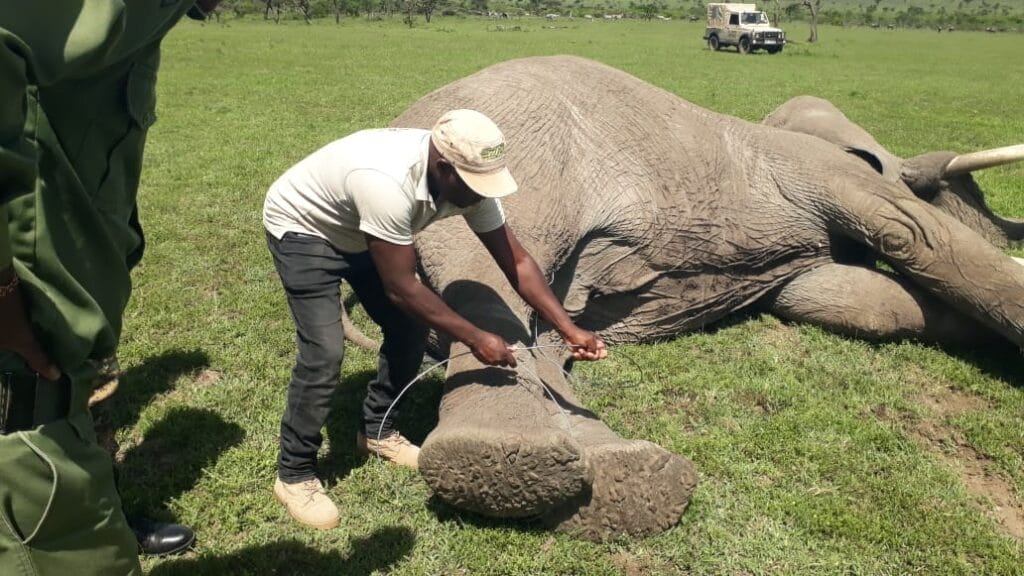
Wire snares are illegal traps set by poachers or farmers to catch wildlife for meat or to protect their crops. This human-wildlife conflict poses challenges, but our collective commitment to conservation prevails and we will continue to work together with the local communities, the authorities and other stakeholders to find sustainable and humane solutions that benefit both people and wildlife.
International Tourist Guide Day 2024
Travel Guide
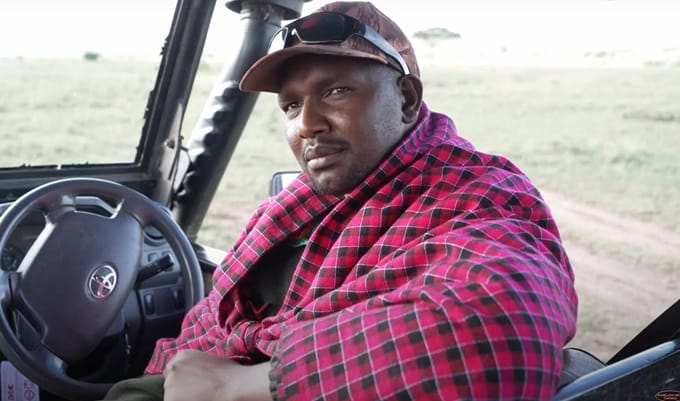
International Tourist Guide Day 2024
On the 21st of February each year we celebrate International Tourist Guide Day!
The WFTGA (World Federation of Tourist Guide Associations) says “this is a day dedicated to the profession of Tourist Guiding and affords us the opportunity to highlight and showcase this profession on the global stage”.
This year the theme was particularly pertinent to us as it was “Tourist Guides: Our Guardians in promoting and encouraging Green Tourism”.
To mark the occasion we have a brand new video series, “Know Your Safari Guide”. In this first video you can meet Geoffrey Ketere, one of our amazing guides at Porini Safari Camps. With years of experience and a deep love for wildlife, Geoffrey brings the magic of the African bush to life for every guest.
From tracking elusive animals to sharing fascinating insights about the local ecosystem, Geoffrey’s expertise and enthusiasm make him a true asset to any safari adventure.











